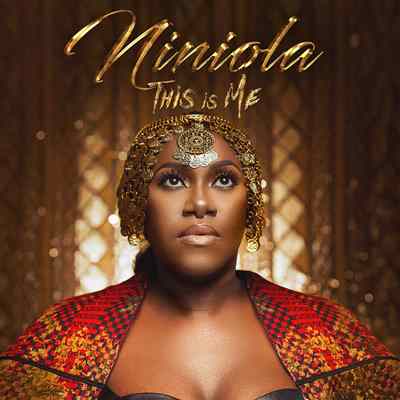The tenets of being a well-rounded singer and an engaging performer are drilled into contestants in the boot camp-esque environments of many talent shows. While this part is integral to artistic growth, the lopsided emphasis on being an efficient singer and performer doesn’t transform into becoming a successful recording artist, especially in Nigeria.
While advantageous, possessing a superbly chippered vocal aesthetic can sometimes be overstated, because music as a composite venture will always be judged and accepted as a sum of its parts. Even with great voices and a national springboard many upcomers will kill for, the major reason why so many ex-contestants and even winners of talent shows become afterthoughts can be attributed towards a lack of stylistic proficiency. Many of these singers rarely find an intriguing sound bed that complements their voices, leading to difficulty in connecting audiences with the music they create.
For Niniola, finding a way to become proficient and unique while also staying efficient has been the igniting gas for her ever-growing flame. Ending up as the third runner-up at the sixth season of MTN Project Fame West Africa in 2013, Niniola’s currently ascending musical career is traveling a path littered with broken dreams and unfulfilled promises.
Feather light and wide-ranging, Niniola’s soulful voice can easily skate across many genres without skirmish, as evidenced in her array of early singles. But choosing the colorful, genre bending ‘Afro-House’ as her primary sonic bow has only added surge to her upward career lunge.
Although prominent on her newly released debut This Is Me, Afro-house serves as a guide to cohesion but in no way does it box in Niniola. Produced by semi-frequent collaborator, Johnny Drille, “Moyo” opens the album with Johnny’s trademark languid R&B tinged, folk-rock style. Surrounded by sugary guitar strums and warm drums, Niniola’s voice and lyrics sprawls out heartily with gratitude to God.
It is pretty quotidian that many debut albums contain a quick praise session that only glimmers at the surface, “Moyo” easily passes the honesty test because of its lyrical profundity and the emotional weight in Niniola’s voice. As the album rolls by, there are other bright spots on Me that are steeped in the spiritual. Clanging local percussions similar to a Cherubim & Seraphim praise session and neon-bright house synths propels the prayer session on “Bale,” with a sectional shift to Fuji music for Terry Apala’s short but saucy guest verse.
Although an extremely cliché title, This Is Me particularly feels apt, because character attributes feel like they have been distilled into the songs. Like its royally beautiful album art, Me oozes an imperial confidence that can feel hyperbolic but still believable and endearing. The frenetic “Magun” in which she claims to have been laced with charms for protection against predators (sexual and otherwise) carries a mystic reminiscent of Goldie’s “Don’t Touch My Body”, pulled off with alluring gusto.
The magnetic, sexy presence Niniola exudes in her videos and on stage is always carried into her music. While the production is shiny and often pulses with a subdermal energy, her voice and lyrical substance is never drowned out – Niniola is undoubtedly the star of the show. She’s the beautiful, curvy lady that makes a shiny gown look 100 times better.
Niniola’s confident cadence throughout Me is effected by her clear and daring writing, interwoven with folksy, idiomatic sayings in Yoruba for chatty effect. Her hooks are sticky and catchy without crossing over to the bland side, coupled with her trusty repetitive style of drilling the hooks until they become irresistible.
Niniola is also very adept at switching between English and Yoruba effortlessly, and with her magnificent vocal display all through, it’s easy to simply enjoy the music even if you don’t understand what she’s saying at particular points.
While the vast majority of This Is Me is molded and directed by Niniola, it also helps that the assistance she receives from vocal features never threatens to ruin the party. Patoranking is the indulgent, love-struck gentlemen to Niniola’s instructive and demanding trot on “Hold Me.” Devin Da Dakta throws some ragga flavor into the electronic love duet trope of “You.” Ugandan singer, Charmant joins in for a standout moment on “Always Here,” where the naïve, joyful energy of both artists creates flowery magic.
Behind the boards, This Is Me has over half dozen producers to contribute to the somewhat expansive and undeniably rambunctious sonic aesthetic. Every producer puts in a good shift, and Niniola gets on each creator’s wavelength, such that even a one-off collab with Legendury Beatz on “Rora” is explosive enough to create a potential banger only waiting to be serviced to Radio and club DJs.
But Niniola’s chemistry with Sarz (who produces 4 tracks) is the gleaming highlight, probably why the official singles have been borne out of this combo. The jesty but brazenly explicit skirt chaser rebuke on “Maradona” retains its initial charming vigor, an album highlight and one of this year’s best songs. Released few weeks ago, “Sicker” brims with confidence which borders on arrogance. The snory bass guitar and abrasive combination of snares and handclaps is hauntingly catchy, supporting her claims – “I’ve got the energy to lighten up the world” – and makes you question why you and whoever else around listening aren’t already shimmying.
Niniola’s showcase on This Is Me creates an engaging and ultimately entertaining display. And just like, Simisola, one of this year’s best releases also thumbed together by a female creative, Me purely stems from Niniola’s intuition.


